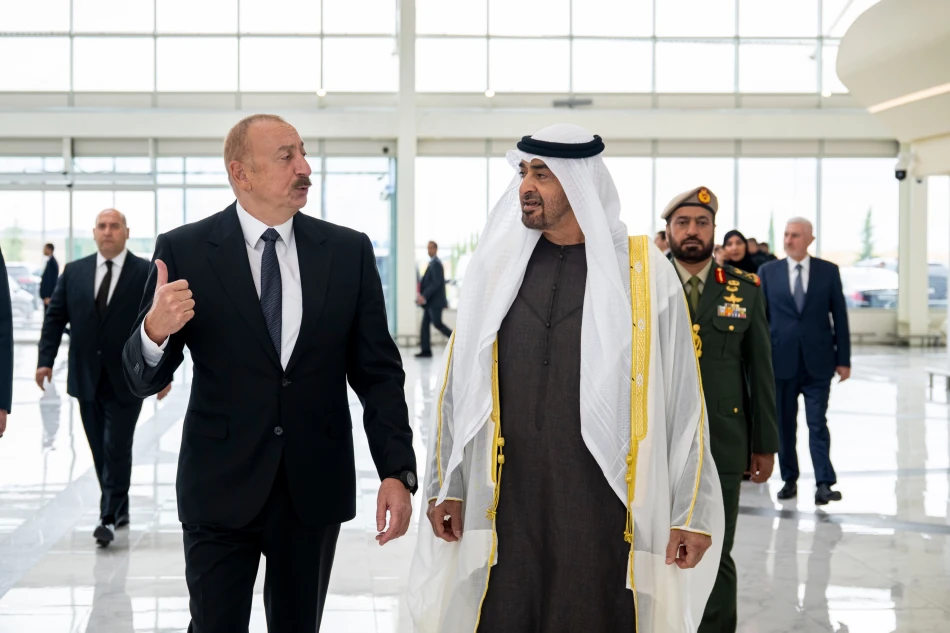
UAE President and Azerbaijani Leader Announce Comprehensive Strategic Partnership and MoUs
UAE and Azerbaijan Forge Strategic Partnership with Focus on AI and Green Energy Innovation
The United Arab Emirates and Azerbaijan have elevated their bilateral relationship to a comprehensive strategic partnership, with artificial intelligence and renewable energy emerging as cornerstone priorities. The partnership, witnessed by UAE President Sheikh Mohammed bin Zayed Al Nahyan and Azerbaijan President Ilham Aliyev, signals both nations' commitment to positioning themselves at the forefront of the global digital and energy transition.
Beyond Oil: A New Economic Vision
This partnership represents a significant shift for both energy-rich nations seeking to diversify their economies beyond traditional hydrocarbon revenues. The UAE's strategy mirrors its successful transformation into a regional hub for finance, technology, and renewable energy, while Azerbaijan appears to be following a similar playbook to reduce its dependence on oil and gas exports.
The timing is particularly strategic, as both countries face pressure to modernize their economies amid global energy transitions and increasing competition from other regional powers like Saudi Arabia and Qatar in attracting international investment and talent.
AI Integration: From Classrooms to Government Strategy
Educational Technology Revolution
The partnership's emphasis on artificial intelligence extends deep into educational infrastructure, with plans to develop AI-powered virtual teachers and intelligent lesson assistants for schools. This approach positions both nations ahead of many Western countries still grappling with how to integrate AI into their educational systems effectively.
National AI Strategy Implementation
Perhaps most significantly, the UAE will help Azerbaijan implement its national AI strategy for 2025-2028, focusing on digital transformation, talent development, and startup ecosystem growth. This represents a notable shift from traditional government-to-government cooperation toward more sophisticated technology transfer agreements.
The move reflects the UAE's growing confidence in exporting its own digital transformation expertise, having successfully established itself as a regional leader in government digitization and smart city initiatives.
Green Energy Ambitions in Focus
The renewable energy component of the partnership deserves particular attention, as it involves development and investment opportunities within the UAE's designated green energy zones. This suggests Azerbaijan is looking to leverage the UAE's advanced renewable energy infrastructure and regulatory framework to accelerate its own clean energy transition.
For investors, this creates potential opportunities in cross-border renewable energy projects, particularly as both countries seek to establish themselves as green energy exporters to European and Asian markets.
Economic Integration Across Multiple Sectors
The partnership extends beyond high-tech sectors to include traditional areas like transportation, tourism, media, and maritime industries, including container ship construction. The establishment of an UAE-Azerbaijan Business Council indicates both governments' intention to facilitate private sector engagement and reduce bureaucratic barriers to bilateral trade.
The involvement of Abu Dhabi Holding Company and Azerbaijan Investment Holding Company suggests significant capital deployment is expected, potentially reaching billions of dollars across multiple sectors over the coming years.
Regional Implications and Market Impact
This partnership strengthens the UAE's position as a bridge between Europe, Asia, and the Middle East, while offering Azerbaijan an alternative to its traditional reliance on Russian and Iranian partnerships. For regional markets, it signals increased competition for investment capital and talent, particularly in the technology and renewable energy sectors.
The workforce cooperation component could also impact regional labor markets, as both countries seek to develop specialized skills in AI, renewable energy, and digital technologies. This may create new migration patterns and professional opportunities across the region.
Most Viewed News

 Sara Khaled
Sara Khaled






